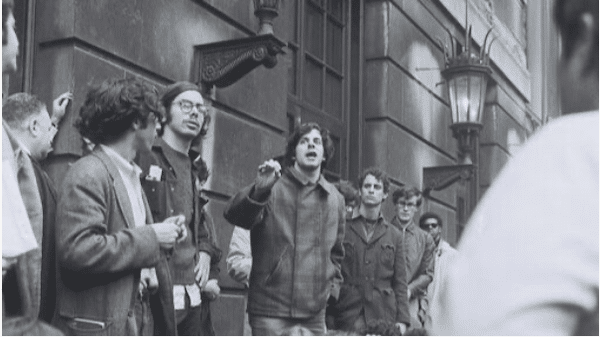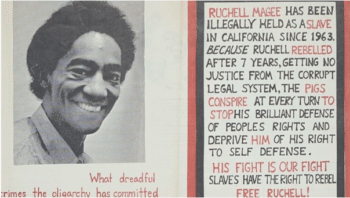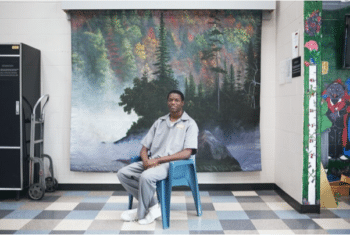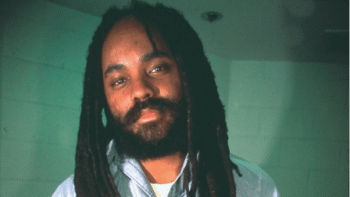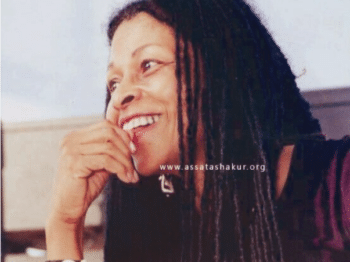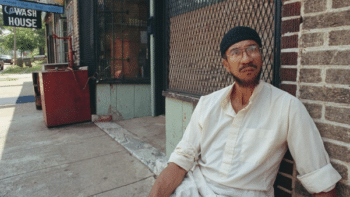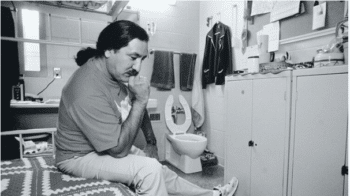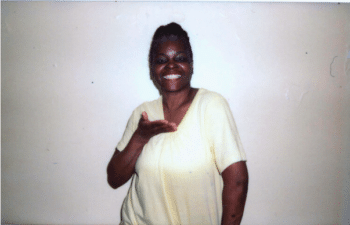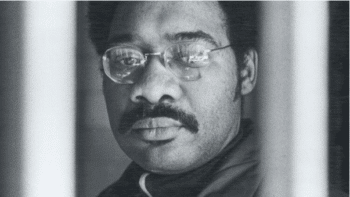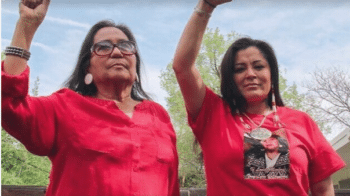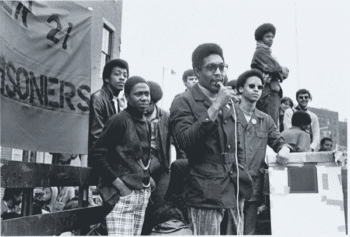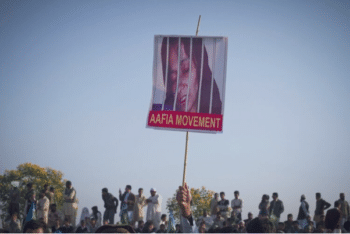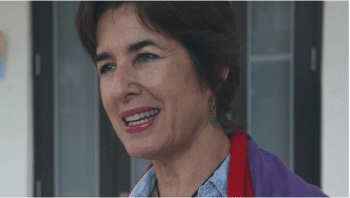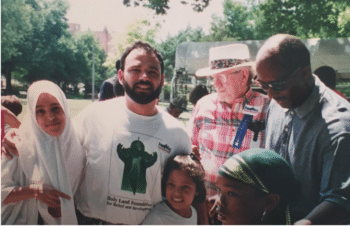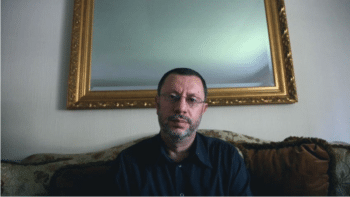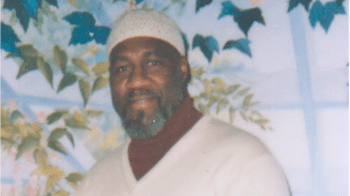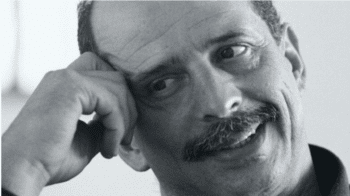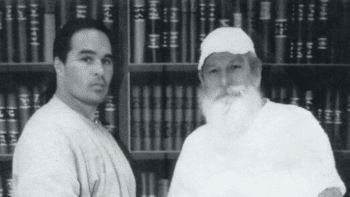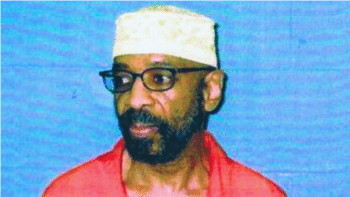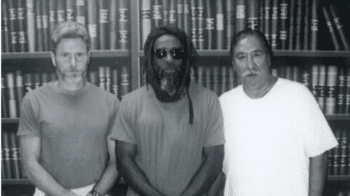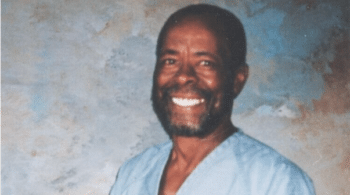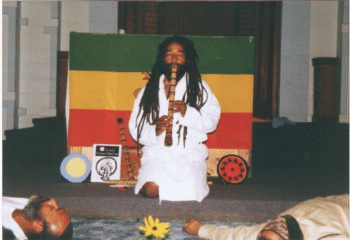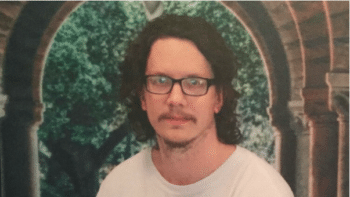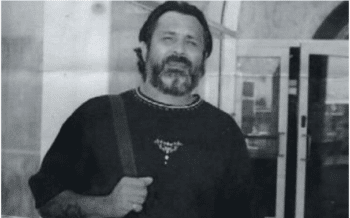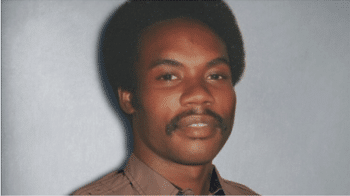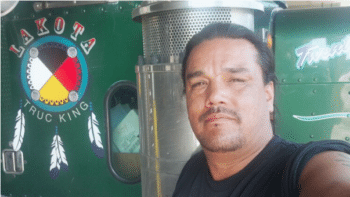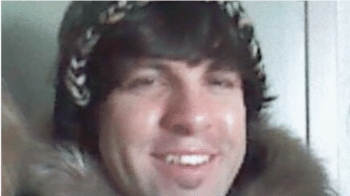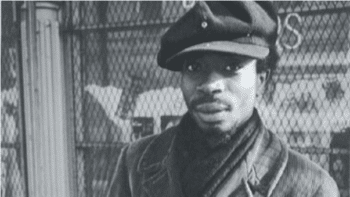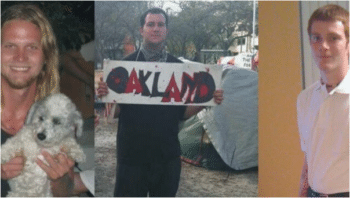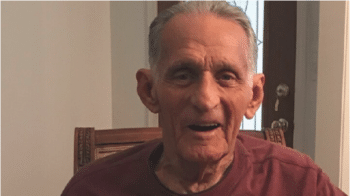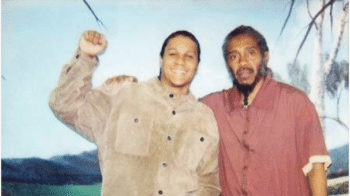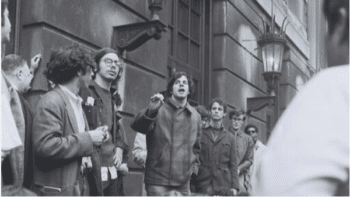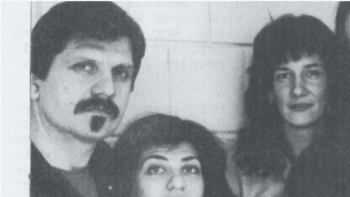Ruchell Magee is the longest held political prisoner in the U.S., having been locked up since 1963. Politicized in prison, he later participated in the Marin County Courthouse Rebellion, the attempted liberation of political prisoner George Jackson. Ruchell Magee pled guilty to the charge of aggravated kidnapping for his part in the assault. In return for his plea, the Attorney General asked the Court to dismiss the charge of murder (Magee being the shooter of Judge Haley). Magee later attempted unsuccessfully to withdraw his plea, and was sentenced in 1975 to life in prison. He has lost numerous bids for parole. He has also worked tirelessly as a jailhouse lawyer, working on his own case and helping many other prisoners win their freedom.
He had been in L.A. for 6 months when he and his cousin Leroy got in a fight over a $10 bag of marijuana. In court, the two ended up with trumped up charges of kidnapping and robbery and he was given life in prison.
While in prison Ruchell began learning the long and rich history of Black liberation history. He adopted the middle name of Cinque, after the enslaved African who led the takeover of the slave ship Amistad, which eventually lead to the freedom of all the slaves on board. He began petitioning his unjust sentence to no avail. Although critically wounded on August 7, 1970, Magee was the sole survivor among the four brave Black men who conducted the courthouse slave rebellion, leaving him to be charged with everything they could throw at him.
Josh Williams is the only remaining political prisoner from the Ferguson/St. Louis uprisings. He was an on-the-ground activist and protester that helped lead one of the largest movements against police violence in modern history. A few months after his 19th birthday, he was convicted and sentenced to a crime with almost no evidence. His unjust and harsh sentence was an attempt to intimidate the movement and make an example out of him. Josh has continued to speak truth to power and use his voice to unify communities against oppression.
-
Josh’s statement in June 2020 (Hamtonthink.org)
-
‘God Let Me See Another Day’ Interview (St.Louis NPR)
-
‘Ferguson protestor wants to be free’ (GQ Interview, 2020)
-
Petition to free Josh (MoveOn.org)
-
Letter Writing Support Q&A (youtube)
Mumia Abu-Jamal, originally Wesley Cook, (born April 24, 1954, Philadelphia, Pennsylvania, U.S.), American journalist and political activist sentenced to death and then to life in prison for the 1981 alleged murder of a police officer, Daniel Faulkner, in Philadelphia.
Mumia stablished his status as a political activist while still a teenager. At age 14, he took part in a protest against a rally for presidential candidate George Wallace and was subsequently arrested by Philadelphia police. The arrest did not deter him from further political activism, and in 1968 he became one of the founding members of the Philadelphia chapter of the Black Panther Party, committed to African American empowerment and self-defense. He briefly worked at the Black Panthers’ newspaper in Oakland, California, in 1970 and returned to Philadelphia a short time later. He also legally changed his name to Mumia Abu-Jamal in 1970.
According to his own account, in the early morning hours of December 9, 1981, Abu-Jamal was driving his taxi when he heard gunshots and saw his brother standing in the street, staggering and dizzy. Abu-Jamal said that he himself was then shot and beaten by a police officer and that someone else shot officer Faulkner. Abu-Jamal also maintained that he was beaten and tortured by police officers prior to receiving medical attention for his wounds.
For the past 40 years, roughly, Mumia has been held in isolation on Death Row without appeal.
On May 2 1973, Black Panther activist Assata Olugbala Shakur (fsn) Joanne Deborah Chesimard, was pulled over by the New Jersey State Police, shot twice and then charged with murder of a police officer. Assata spent six and a half years in prison under brutal circumstances before escaping out of the maximum security wing of the Clinton Correctional Facility for Women in New Jersey in 1979 and moving to Cuba.
Statement from Assata: “My name is Assata (“she who struggles”) Olugbala ( “for the people” ) Shakur (“the thankful one”), and I am a 20th century escaped slave. Because of government persecution, I was left with no other choice than to flee from the political repression, racism and violence that dominate the U.S. government’s policy towards people of color. I am an ex political prisoner, and I have been living in exile in Cuba since 1984. I have been a political activist most of my life, and although the U.S. government has done everything in its power to criminalize me, I am not a criminal, nor have I ever been one.
In the 1960s, I participated in various struggles: the black liberation movement, the student rights movement, and the movement to end the war in Vietnam. I joined the Black Panther Party. By 1969 the Black Panther Party had become the number one organization targeted by the FBI’s COINTELPRO program. because the Black Panther Party demanded the total liberation of black people, J. Edgar Hoover called it “greatest threat to the internal security of the country” and vowed to destroy it and its leaders and activists.”
Jamil Abdullah Al-Amin (born Hubert Gerold Brown; October 4, 1943), formerly known as H. Rap Brown, was the fifth chairman of the Student Nonviolent Coordinating Committee in the 1960s, and during a short-lived (six months) alliance between SNCC and the Black Panther Party, he served as their minister of justice.
On March 9, 2002, nearly two years after the shooting, al-Amin was convicted of 13 criminal charges, including Kinchen’s murder. Four days later, he was sentenced to life in prison without possibility of parole. He was sent to Georgia State Prison, the state’s maximum-security facility near Reidsville, Georgia.
Otis Jackson, a man incarcerated for unrelated charges, claimed that he committed the Fulton County shooting two years before al-Amin was convicted of the same crime, but the court did not consider Jackson’s statement as evidence. Jackson’s statements corroborated details from 911 calls following the shooting, including a bleeding man seen limping from the scene: Jackson said he knocked on doors attempting to solicit a ride while suffering from wounds sustained in the firefight with deputies Kinchen and English.
A leader and activist in the American Indian Movement, has been in prison for 43 years as of 2020. Peltier participated in the AIM encampments on the Pine RIdge Reservation. In 1975 an FBI operation led to a confrontation in which two FBI agents died. In a COINTELPRO style operation, he was sentenced to life for murdering two FBI agents. Evidence exonerating Peltier was withheld by the FBI. In his appeal, the government admitted it had no evidence to show he killed the two FBI agents.
Native American activist Leonard Peltier has spent over 40 years in prison for a crime he did not commit. Prosecutors and federal agents manufactured evidence against him (including the so-called “murder weapon”); hid proof of his innocence; presented false testimony obtained through torturous interrogation techniques; ignored court orders; and lied to the jury. People are commonly set free due to a single constitutional violation, but Peltier—innocent and faced with a staggering number of constitutional violations—has yet to receive equal justice.
As a pastor and a consistent activist against police brutality, violence and oppression in her community in New York. She was warned by the Rochester Police department that she was a target because of her speaking out against corruption. On many occasions, from 1995 to 2006, Rev. Joy had held rallies and spoke out against the police brutality and “police justifications” in Rochester NY. In 2006, she was accused and convicted of 1st Degree Burglary and Assault. Joy is sure the prosecution was politically motivated based on her activism through her organization, Equality and Justice For All.
An all-white jury tried her; the state provided no evidence and no eyewitnesses. Rev. Joy was not allowed to discuss her activism or say that she was a pastor. The person that testified for her was not allowed to tell the court that he knew Rev. Joy through their activist work and the church. Furthermore, Judge Francis Affronti promised he was going to give her a harsh sentence because he was biased against her. While serving a 16-year sentence for the conviction, a cold murder case was pinned on her. The trial was fraught with misconduct, yet she was convicted and sentenced to 25 years to life. She is currently seeking counsel to file an appeal.
Edward Poindexter and Wopashitwe Mondo Eyen we Langa (David Rice) were convicted and sentenced to life in prison in 1971 for the murder of Omaha Police Officer Larry Minard. Minard died when a suitcase dynamite bomb exploded in a vacant house in North Omaha on August 17, 1970. Officer John Tess was also injured in the explosion.
Poindexter and the late Wopashite Mondo Eyen we Langa are referred to by some supporters as the “Omaha 2.” Their conviction was controversial and has never been accepted as legitimate by many in the African American community in Omaha. Poindexter and Mondo were suspects- before there was any evidence- because they were leaders of the National Committee to Combat Fascism (NCCF), an offshoot of the Black Panther Party. A 15-year old boy named Duane Peak carried a suitcase around North Omaha for six hours on the Sunday before the bombing. His sister drove him with the suitcase to the neighborhood where the bomb exploded. Peak’s entire family was charged in the first-degree murder of a police officer because they took a car ride with Duane while he was carrying the suitcase.

